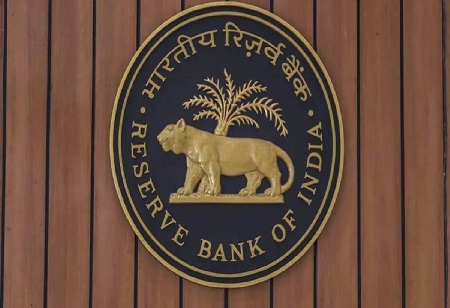More non-banks, MSMEs probable to swipe the TReDS platform
By Consultants Review Team
 The central bank's move to make organizations to participate in the Rs 60,000 crore TReDS platform is likely to expand the involvement of non-banks and mid-sized corporates. Deals on the secondary market will also provide current players with more liquidity. Nearly 45,000 small and medium-sized businesses are registered vendors on the marketplace at the moment.
The central bank's move to make organizations to participate in the Rs 60,000 crore TReDS platform is likely to expand the involvement of non-banks and mid-sized corporates. Deals on the secondary market will also provide current players with more liquidity. Nearly 45,000 small and medium-sized businesses are registered vendors on the marketplace at the moment.
Trade Receivables and Discounting System (TReDS) is an electronic bill discounting platform regulated by RBI and endorsed by the central government to provide MSME 'suppliers' of corporate 'buyers' instant payments for future receivables to prevent delay in payouts for cash-strapped small businesses.
TReDS volumes have doubled in the last two years and an increase in liquidity on the platforms is critical for scale-up.
"With insurance companies being allowed to participate as the 'fourth participant' on TReDS, we expect appetite for a large segment of moderately rated corporates to increase," said Prakash Sankaran, MD, Invoicemart. "The secondary market for financiers to sell their TReDS portfolio will free up capital to finance fresh transactions on the platform. With more entities now being allowed to undertake factoring business, we expect an increase in NBFC registrations on TReDS platforms resulting in access to funds to a more broad-based range of MSMEs."
On Thursday the RBI said it will allow entities eligible to undertake factoring business to participate as financiers on TReDS and allow secondary market operations on the platform.
"Financiers will be able to sell their portfolio of invoices discounted on TReDS to other financiers thereby freeing up the liquidity for supporting the MSMEs further," Said Sundeep Mohindru, director at M1xchange, a TReDS platform.
Banks and NBFCs finance invoices at competitively priced interests on a bidding basis on the platform which then gets structured as short-term loans to the corporates with a maximum maturity period of 180 days.
"Wider participation by more entities can keep the receivable discounting pricing under check as the volume on these platforms increases," said Anil Gupta, senior vice president at ICRA. "Flexibility to allow re-discounting by existing holders of discounted receivables will aid liquidity of participants. Insurance coverage for the discounted receivables can also enhance the volumes and further reduce the pricing of such insured receivables."




